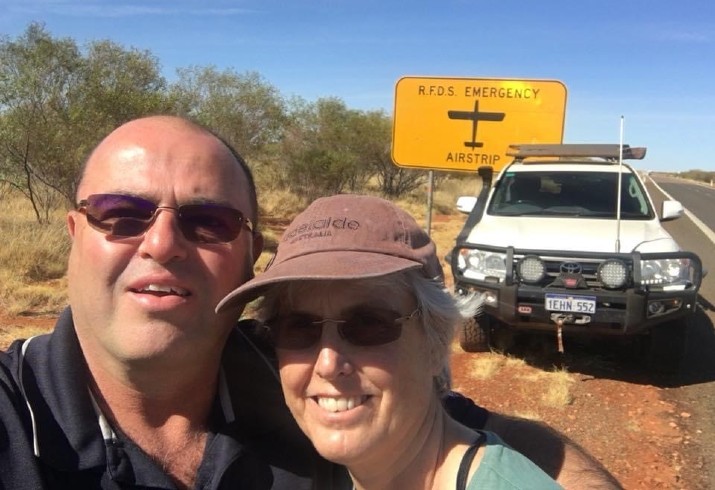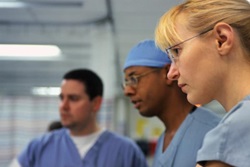Rural medicine runs in the family for this Pilbara doctor

Dr Cherelle Fitzclarence is a Senior Medical Officer (SMO) and General Practitioner (GP) for the WA Country Health Service (WACHS). She works in the West Pilbara region of Western Australia.
Starting out as a junior doctor in Newcastle and then moving to Darwin with her husband and three young children, Cherelle practised in paediatrics and obstetrics prior to moving into anaesthetics when she reached registrar level.
Now almost 30 years on, she reflects on what it has been like living and working in some of Australia’s most remote regions.
“It’s been nearly three decades since I started practising medicine and apart from the three years I spent working in Perth as a GP and in the prison system, I have worked primarily as a rural generalist with a fellowship from ACRRM and RACGP.
“The scope of practice working in country is broad and I have had the privilege of doing some incredible things in my time including aeromedical retrievals out of Katherine in the Northern Territory and helping to setup chronic disease management in the Kimberley, always working with amazing teams.
“I have been based in Karratha since 2017 and I love it here.”
Cherelle isn’t the only doctor in her family. Her husband also studied medicine and works as a rural generalist in the Pilbara.
“My husband was originally a spray painter but developed a heart condition and had a heart transplant in 2000.
“After that he couldn’t stay in the same line of work, so he decided to study nursing and then moved into paramedicine before eventually studying medicine.
“He graduated in 2010 and has gone from strength to strength.”
Her youngest son is an anaesthetic trainee in Perth heading for rural medicine and her daughter is an emergency nurse in Karratha.
“We joke that our oldest son is the only one with sense - he is the engineer that keeps us all sane. We have had our children bring three lovely partners to our family, one medical, one nursing and a sparky to further help keep us grounded.”
Cherelle is a real advocate for the skills you pick up working in remote medicine.
“As a rural generalist, you need to tailor your training to what you need at the time for the role that you are occupying. To be a true rural generalist you need to be committed to lifelong learning.
“That’s why I have stayed in this type of role for so long, I am constantly picking up new skills and trying to improve my knowledge base.”
When asked how she has handled the sheer scope of work she has been presented with over the years, Cherelle said the support of colleagues near and far means help is always at hand.
“At times, I have had to work outside my scope as I was the only person around. If this happened, I would get someone on the phone and get the help I needed.
“Over the last few years with the introduction of telehealth, our service capability has improved dramatically because even if you are 2000km away there is a specialist able to talk you through the process and you never truly feel alone, you have a supportive team with you.”
Cherelle now operates as the SMO at Karratha Health Campus and divides her time between managing the medical cohort within the hospital and continuing to operate clinically.
“Every day is variable. I could be attending meetings with internal or external stakeholders, overseeing the induction and orientation of new doctors, providing clinical training to our junior doctors, dealing with complaints or troubleshooting medical problems on the wards or be providing clinical support in the emergency department.
“Of course, there is also the medical student interaction as well. We love our students and they become part of our West Pilbara ‘family’.
“I really love my role and I feel like I am making a real difference. When you work in such a small community you see the patients you are treating at church or in the supermarket and it makes it all worthwhile.
“When you work in a small community you really rely on the wonderful team around you at work, and we are blessed with awesome people in our team.
“For anyone considering a move to remote medicine, I would recommend they come out and try it. The sheer number of learning opportunities are endless, the lifestyle is great and if they are anything like me, they may try it and never look back!”
To find out more about working with WACHS contact our Medical Recruitment Team or visit our living and working in country WA page. For current opportunities visit our medical vacancies page.
Alternatively join the WACHS LiveHire Medical Talent Community to be the first to hear about upcoming locum and longer term opportunities.


